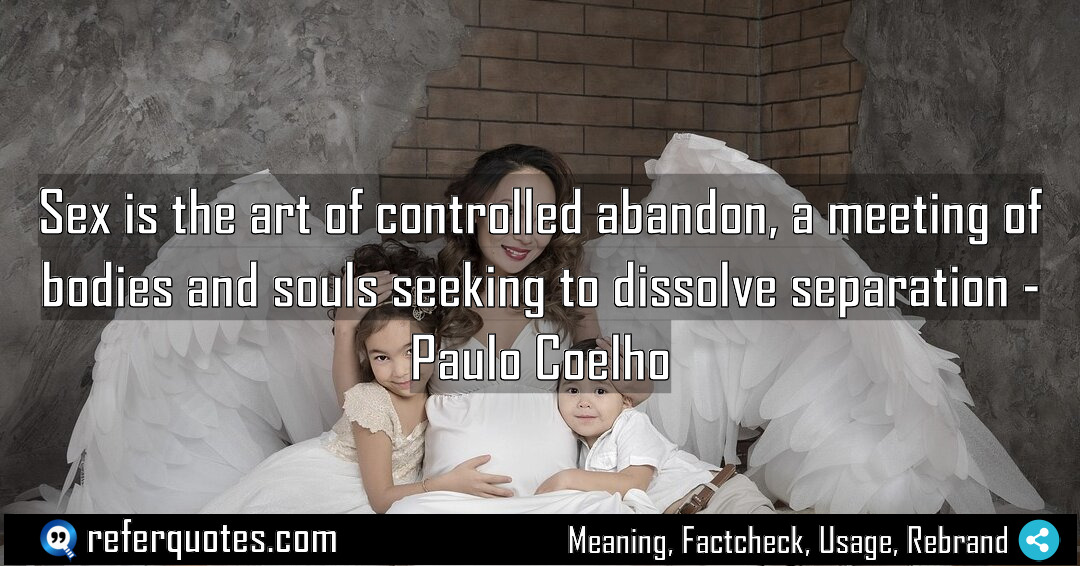Sex is the art of controlled abandon beautifully captures the profound paradox at the heart of physical intimacy. It’s not about wild recklessness, but a conscious, shared surrender. This idea transforms the act from mere physicality into something much deeper and more meaningful.
Share Image Quote:Table of Contents
Meaning
At its core, this quote suggests that truly meaningful sex is a paradox: it’s a deliberate, conscious act of letting go, where two people seek to erase the boundaries between them.
Explanation
Let’s break this down because it’s genius. “Controlled abandon” – that’s the key. It’s not just losing yourself completely. That’s chaos. It’s about choosing to surrender. You’re present, you’re aware, you’re consenting, but you’re also allowing yourself to be swept away by the sensation and the connection. And that second part, “seeking to dissolve separation”… that’s the real goal, isn’t it? It’s the attempt to move beyond two separate bodies and two separate egos and touch something unified, even if it’s just for a moment. It’s the opposite of using someone; it’s about meeting them. It’s a collaboration.
Quote Summary
| Context | Attributes |
|---|---|
| Original Language | Portuguese (369) |
| Category | Love (89) |
| Topics | connection (265), intimacy (7) |
| Literary Style | philosophical (434), poetic (635) |
| Emotion / Mood | intense (12), intimate (11) |
| Overall Quote Score | 83 (302) |
Origin & Factcheck
This comes straight from Paulo Coelho’s 2003 novel, Eleven Minutes. It’s a powerful book that follows a young Brazilian woman’s journey into and through a life of prostitution in Switzerland, and her search for the line between sacred love and physical pleasure. You sometimes see this quote floating around unattributed or misattributed to other spiritual writers, but its home is definitively in Coelho’s work.
Attribution Summary
| Context | Attributes |
|---|---|
| Author | Paulo Coelho (368) |
| Source Type | Book (4032) |
| Source/Book Name | Eleven Minutes (47) |
| Origin Timeperiod | Contemporary (1615) |
| Original Language | Portuguese (369) |
| Authenticity | Verified (4032) |
Author Bio
Paulo Coelho(1947) is a world acclaimed novelist known for his writings which covers spirituality with underlying human emotion with a profound storytelling. His transformative pilgrimage along the Camino de Santiago inspired his breakthrough book, The Pilgrimage which is soon followed by The Alchemist< which went on to become the best seller. Through mystical narratives and introspective style, Paulo Coelho even today inspires millions of people who are seeking meaning and purpose in their life
Official Website |Facebook | Instagram | YouTube |
Where is this quotation located?
| Quotation | Sex is the art of controlled abandon, a meeting of bodies and souls seeking to dissolve separation |
| Book Details | Publication Year: 2003 (Brazil); ISBN: 978-0-06-058928-8; Latest Edition: HarperCollins 2004; 288 pages. |
| Where is it? | Chapter 38, Approximate page from 2003 edition |
